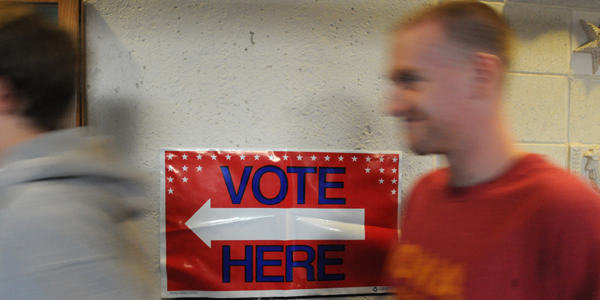Senate Panel Pans Voting Decision

The Faculty Senate’s executive committee issued a statement this week expressing its “deep regret” with the Wake County Board of Elections for dropping NC State as an early voting site. Election officials have approved nine sites for early voting in this fall’s general election, most in Raleigh’s affluent suburban neighborhoods.
NC State students and residents of neighborhoods near campus are younger than those served by other early-voting sites, averaging between 22 and 27 years of age, according to census records. Residents near early-voting sites in Cary, Apex, Wake Forest and other suburban neighborhoods are a decade older on average.
The Faculty Senate’s executive committee noted the importance of encouraging younger voters to participate in the election.
“We believe that this decision will make it more difficult for students to participate in the electoral process at a crucial time in our nation when we should be doing all we can to increase young people’s engagement with democracy and the right to vote,” the statement said.
Early Voting Popular on Campus
The voting site at NC State was used by more than 13,000 students, staff, faculty and other residents of Wake County in the 2012 election, the committee noted.
“Many of the students voted for the first time, and are more likely to continue voting with a site on campus,” the statement said. “For those students and local residents without cars, the voting site on campus was especially convenient and accessible.”
“Making access to polling sites more difficult is likely to increase citizens’ disengagement from the political process, just as institutions such as the U.S. Congress are held in low regard by much of the public,” the statement said. “To counteract this growing cynicism, we urge the Board of Elections to do everything within its power to make all polling sites as accessible as possible to the maximum number of voters throughout the county. The more citizens vote, the greater our chances for restoring faith and confidence in our government and its institutions.”
Four of Wake County’s early-voting sites serve overwhelmingly white communities with median household incomes above $80,000 a year, according to census records. Only two sites serve low-income neighborhoods. And one of those sites, the Board of Elections office in downtown Raleigh, does not provide free parking.
- Categories:


